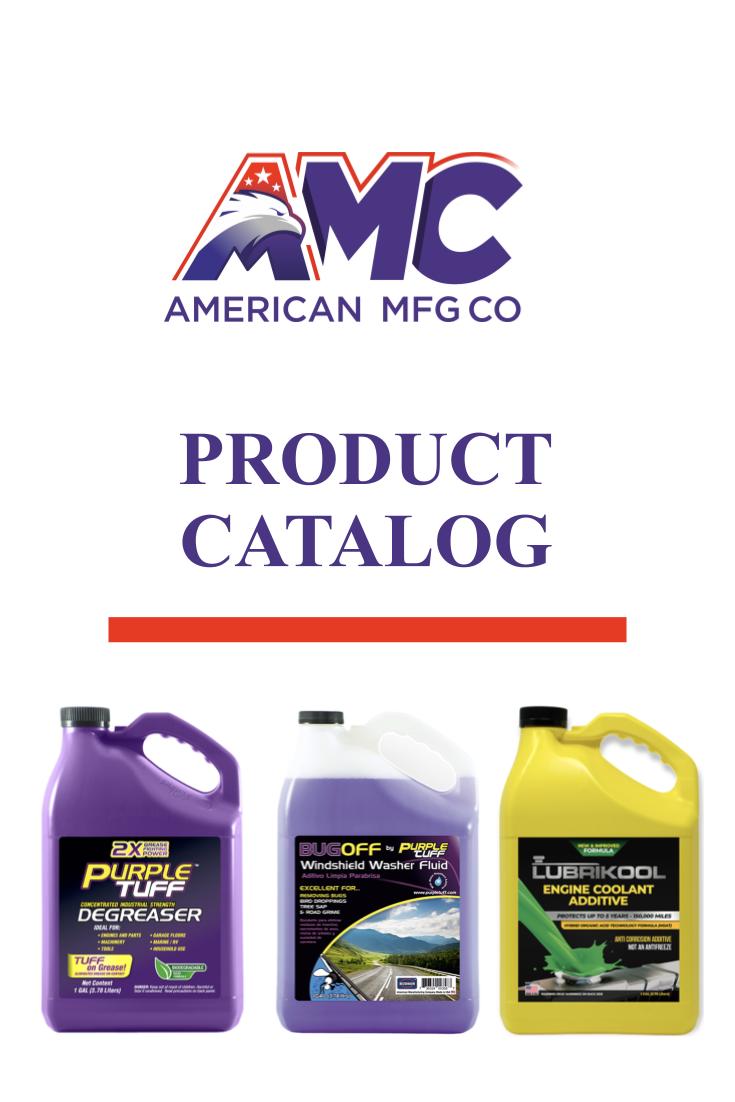Blog
Why Is Antifreeze Important? Does My Car Really Need It?

El sobrecalentamiento del motor es uno de los problemas más comunes que enfrentan los mecánicos en sus talleres. Este problema puede dejar tu coche fuera de servicio y causar daños permanentes al motor. Si escuchas ruidos extraños provenientes de tu coche, notas un capó caliente o un olor a quemado, o cualquiera de estos síntomas, necesitas anticongelante lo antes posible. Pero antes de comprar anticongelante o anticongelante para diésel en línea, aquí tienes información importante que debes conocer para tomar una decisión informada según el modelo y la fabricación de tu vehículo.
¿Qué es el anticongelante?
Antes de profundizar en su funcionalidad, es importante entender qué es el anticongelante. Es un compuesto refrigerante de motor tintado que se usa para regular la temperatura del motor. Se mezcla con agua y se añade al radiador. Contiene etilenglicol o propilenglicol, compuestos químicos que reducen el punto de congelación y aumentan el punto de ebullición del agua, evitando que esta se congele, hierva o se evapore. El anticongelante ayuda a disipar el calor generado durante la combustión en los radiadores. Inicialmente, viene como un líquido concentrado que debe diluirse con agua antes de usarse. Los diferentes vehículos requieren tipos específicos de refrigerantes, una combinación de anticongelante y agua, y están disponibles en varios colores como rosa, azul y verde.
¿Cómo funciona el anticongelante?
Se mezcla en una proporción de 50/50 con agua y se vierte en un depósito designado del motor del coche. Actúa como un líquido base que se bombea a través del motor del coche para mantener una temperatura óptima, incluso en condiciones de calor extremo o frío intenso. Es efectivo hasta 275 °F (135 °C) en temperaturas calientes y hasta -30 °F (-34 °C) en climas fríos. Además de regular la temperatura, el anticongelante lubrica muchas partes del motor, como la bomba de agua, para prevenir daños por fricción y sobrecalentamiento. También protege contra la corrosión gracias a sus propiedades anticorrosivas. Mantener niveles óptimos de anticongelante mejora la vida útil de los vehículos.
¿Cuándo y por qué debe cambiarse el anticongelante?
El anticongelante, como cualquier compuesto, tiene una fecha de caducidad y se vuelve extremadamente ácido con el tiempo. Los refrigerantes del motor deben cambiarse después de los primeros 60,000 millas (96,000 km) y luego cada 30,000 millas (48,000 km). Algunos motores utilizan refrigerantes de larga duración que, con una proporción 50-50 de anticongelante y agua, pueden prevenir el congelamiento y la ebullición en condiciones extremas durante varios años con poco mantenimiento. Sin embargo, el anticongelante pierde sus propiedades inhibidoras de óxido con el tiempo, lo que puede causar corrosión y dañar el termostato, el radiador, las mangueras y otras partes del sistema de enfriamiento. Es recomendable que un mecánico analice la efectividad del anticongelante después de un tiempo. Si tu coche ha estado expuesto a servicios severos como remolques frecuentes o sobrecalentamientos, deberías cambiar el refrigerante cada 150,000 millas (240,000 km), sin importar la antigüedad o las condiciones del vehículo.
¿Tu coche necesita anticongelante?
Sí, todos los coches, ya sean antiguos o modernos, necesitan un suministro de anticongelante en cuanto el anterior expire. Es esencial para que el motor funcione correctamente. Sin este refrigerante, los radiadores pueden causar daños permanentes, como cabezas deformadas, juntas de culata sopladas y fallos en el motor.
¿Cuándo cambiar el anticongelante?
Luces de advertencia
Recordar los horarios de mantenimiento puede ser complicado, y llevar el coche al mecánico consume tiempo. Por eso, muchos vehículos tienen sistemas de advertencia incorporados que se encienden para alertar al conductor cuando el motor se sobrecalienta. Esto suele indicar que el anticongelante ha caducado o que el nivel en el motor es demasiado bajo. Si la temperatura de tu motor es extremadamente fría o caliente, consulta con un mecánico.
Olor dulce
Un olor dulce mientras conduces es señal de que el anticongelante ha filtrado del radiador. En este caso, el radiador ya no puede retener la mezcla, por lo que es necesario realizar un drenaje o cambio del refrigerante para evitar daños mayores.
Problemas para encender
Si tienes problemas para encender tu coche en climas extremos, revisa los niveles de refrigerante. En ocasiones, no se necesitan reparaciones costosas, solo un chequeo y relleno de anticongelante.
Cambios de color
Aunque el color no es una forma confiable de determinar la actividad del anticongelante, si el líquido tiene partículas de polvo o parece oxidado, probablemente ya no es efectivo. Tras un viaje, revisa el color y la opacidad del líquido una vez que el motor esté frío. Extrae una pequeña cantidad del líquido y verifica su estado.
Soluciones confiables para tu coche
Ya sea que necesites reparaciones esenciales o solo recargas para tu vehículo, American MFG ofrece todo lo necesario para mantener tu coche en óptimas condiciones. Como uno de los fabricantes más confiables de anticongelantes para diésel, ayuda a mantener los motores frescos y funcionando sin problemas tanto en verano como en invierno. Contáctalos para encontrar el anticongelante adecuado para tu vehículo.
Why is antifreeze important? Does my car really need it?

Engine overheating is one of the most common problems mechanics face in their workshops. This issue can take your car out of service and cause permanent damage to the engine. If you hear strange noises coming from your car, notice a hot hood, or smell something burning, or any of these symptoms, you need coolant as soon as possible. But before buying coolant or diesel coolant online, here’s some important information you should know to make an informed decision based on your vehicle’s model and make.
What is coolant?
Before diving into its functionality, it’s important to understand what coolant is. It is a tinted engine coolant compound used to regulate the engine’s temperature. It is mixed with water and added to the radiator. It contains ethylene glycol or propylene glycol, chemical compounds that lower the freezing point and raise the boiling point of water, preventing it from freezing, boiling, or evaporating. Coolant helps dissipate the heat generated during combustion in the radiators. Initially, it comes as a concentrated liquid that must be diluted with water before use. Different vehicles require specific types of coolants, a mixture of coolant and water, and are available in various colors such as pink, blue, and green.
How does coolant work?
It is mixed in a 50/50 ratio with water and poured into a designated reservoir in the car’s engine. It acts as a base fluid that is pumped through the car’s engine to maintain an optimal temperature, even in extreme heat or cold conditions. It is effective up to 275°F (135°C) in hot temperatures and down to -30°F (-34°C) in cold climates. In addition to regulating temperature, coolant lubricates many engine parts, such as the water pump, to prevent damage from friction and overheating. It also protects against corrosion due to its anti-corrosive properties. Maintaining optimal coolant levels improves the vehicle’s lifespan.
When and why should coolant be changed?
Coolant, like any compound, has an expiration date and becomes extremely acidic over time. Engine coolants should be changed after the first 60,000 miles (96,000 km) and then every 30,000 miles (48,000 km). Some engines use long-life coolants that, with a 50-50 mixture of coolant and water, can prevent freezing and boiling under extreme conditions for several years with minimal maintenance. However, coolant loses its rust-inhibiting properties over time, which can cause corrosion and damage the thermostat, radiator, hoses, and other parts of the cooling system. It’s recommended that a mechanic assess the effectiveness of the coolant after some time. If your car has been exposed to severe services like frequent towing or overheating, you should change the coolant every 150,000 miles (240,000 km), regardless of the vehicle’s age or conditions.
Does your car need coolant?
Yes, all cars, whether old or new, need a supply of coolant as soon as the previous one expires. It is essential for the engine to function properly. Without this coolant, radiators can cause permanent damage, such as warped heads, blown head gaskets, and engine failures.
When should you change the coolant?
Warning lights
Remembering maintenance schedules can be tricky, and taking the car to the mechanic takes time. That’s why many vehicles have built-in warning systems that light up to alert the driver when the engine is overheating. This usually indicates that the antifreeze has expired or that the engine’s level is too low. If your engine temperature is extremely hot or cold, consult a mechanic.
Sweet smell
A sweet smell while driving is a sign that the coolant has leaked from the radiator. In this case, the radiator can no longer retain the mixture, so it’s necessary to drain or replace the coolant to avoid further damage.
Starting issues
If you’re having trouble starting your car in extreme weather, check the coolant levels. Sometimes, expensive repairs aren’t necessary—just a quick check and a refill of antifreeze may be all it needs.
Color changes
Although color is not a reliable way to determine the antifreeze’s condition, if the fluid has dust particles or looks rusty, it’s probably no longer effective. After a trip, check the color and opacity of the liquid once the engine is cold. Extract a small amount of the fluid and check its condition.
Reliable solutions for your car
Whether you need essential repairs or just refills for your vehicle, American MFG provides everything you need to keep your car in optimal condition. As one of the most reliable manufacturers of diesel antifreeze, they help keep engines cool and running smoothly, both in summer and winter. Contact them to find the right antifreeze for your vehicle.




